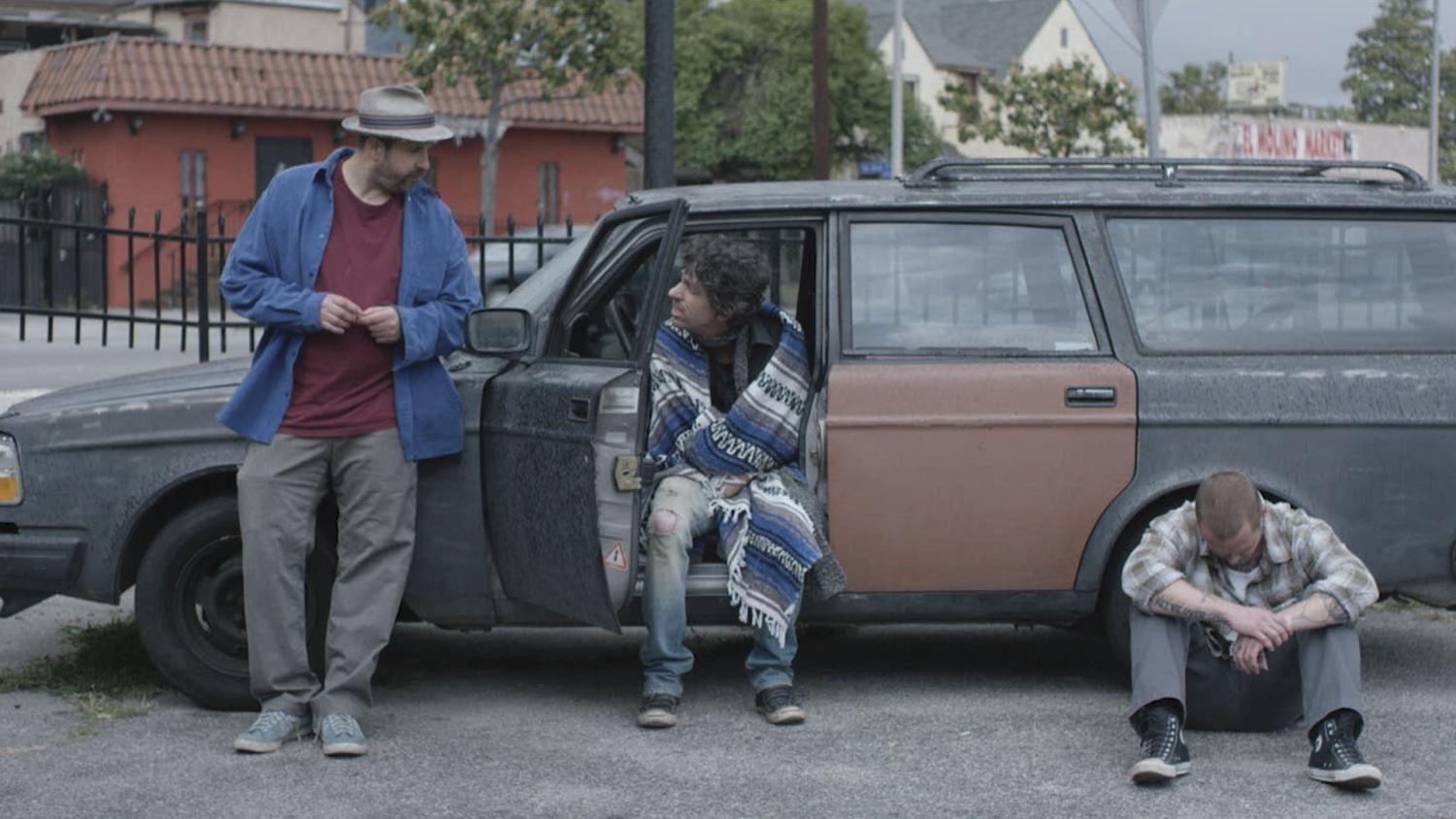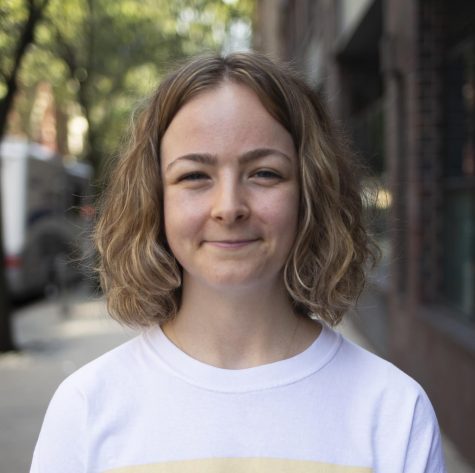Tribeca 2017: ‘A Thousand Junkies’ is a Comedic Ode to Addiction
Tommy Swerdlow as Tommy, TJ Bowen as TJ and Blake Heron as Blake chill in the car in “A Thousand Junkies.”
May 1, 2017
Many artists are known for infusing their work with autobiographical aspects to tell a personal and richer cinematic story. But it is rare to see someone’s life — step for step, location for location — be portrayed with such a raw honesty as it is in “A Thousand Junkies.” Tommy Swerdlow, TJ Bowen and Blake Heron star as versions of themselves in this daylong exploration into the lives of three heroin addicts.
The film begins with the three leads getting into a barely functioning Volvo just before 7 a.m. They drive out to meet their dealer, and based on the mundanity of their movements, it’s clear that this is nearly a routine. Their dealer fails to show up for the regular interaction because his wife is in labor, so the three men have no choice but to frantically drive around Los Angeles in search of money and a dealer with whom they haven’t already burned bridges.
Swerdlow, best known for writing the ’90s classic “Cool Runnings,” suffered from a decades-long heroin addiction that eventually prompted him to recount his experiences for “A Thousand Junkies,” which he directed and co-wrote with Bowen. Drug addiction is a heavy topic to try to conquer, but Swerdlow does it with such a feel for comedy that at times, the audience questions if they should be laughing. However — because it is almost entirely drawn from his own struggles with drugs — the film is an impeccably accurate depiction of the turmoil of heroin that few others have accomplished.
The exciting concept behind “A Thousand Junkies,” as Swerdlow pointed out in a question-and-answer session after the film’s premiere at the Tribeca Film Festival on April 22, is that none of them actually shoot up during the film. Seeing them do drugs is not the interesting part of the story — rather, it is watching them grow more and more anxious and waiting to see what they’re willing to do for those drugs.
Swerdlow, Bowen and Heron have exceptional chemistry — which isn’t surprising considering they first crossed paths in Alcoholics Anonymous meetings before making this film. Even more impressive is their ability to retrace their path to addiction with relative levity, often looking back on their past and mocking one another for the absolute control heroin had over them.
A subtler feature of “A Thousand Junkies” is its oddly romantic ode to South–Central Los Angeles. On the trio’s quest for heroin, the audience journeys through a wide variety of Los Angeles locations, all of which Swerdlow actually traveled to. While it isn’t the glamorous and star-studded city that films usually portray, it is a fitting set for “A Thousand Junkies” and strangely beautiful in its own right.
People have always been enticed by sin and vice. Naturally, the notion of drug addiction is immediately alluring. To see it in such a bleak and unvarnished light, however, is something that few films tackle. Swerdlow’s ability to harness his past and turn it into a comedic and true tale is a testimony to the richness of “A Thousand Junkies.”
Email Daniella Nichinson at [email protected].

























































































































































